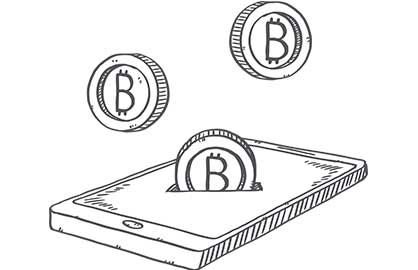Zakat is the third of five core pillars of Islam and by Quranic ranking, is next after Prayer in importance. Zakat is due on one’s personal assets but is never payable on one’s residence, vehicle, clothing, electronics so on and so forth. Zakat has been made obligatory on specific assets: gold, silver, cash, business stock, receivables, investments in these assets, agricultural produce and livestock.
From a Sharia perspective, Crypto follows the principles of Zakat on investments and trading. Crypto assets can be defined as “digital representations of value that use cryptographic encryption techniques.” A token can represent a medium of exchange, an asset, a utility, service, a right or anything.
Crypto assets can be defined as “digital representations of value that use cryptographic encryption techniques.” A token can represent a medium of exchange, an asset, a utility, service, a right or anything.
The Zakat treatment of crypto assets depends on two things:
- The type of crypto asset
- The investment and trading strategy in crypto asset
Coins/Exchnage tokens/Payment tokens:
Zakat is always due on these types of crypto assets at 100% of your current holding value regardless of the intention and trading strategy.
Security tokens:
If these tokens represent ownership in an asset and the tokens are purchased to resell, then they are subject to zakat at 100% of your current holding value. If purchased for dividend income & long-term investment, zakat will depend on the underlying assets of the company.
Utility tokens:
If these tokens represent ownership in an asset and the tokens purchased to resell, they are subject to zakat at 100% of your current holding value. If purchased to use, zakat will not be due on these tokens.
Asset-backed tokens:
If purchased to resell, it will be subject to zakat at 100% of your current holding value. If purchased as an investment, Zakat will depend on the underlying asset. If it is a Zakatable asset, it will be subject to zakat.
Governance tokens:
If these tokens represent ownership in an asset and the tokens purchased to resell, it is Zakatable at 100% of your current holding value. If purchased to use, Zakat will not be due on these tokens.
Platform tokens:
If these tokens represent ownership in an asset and the tokens are purchased to resell, it is Zakatable at 100% of your current holding value. But if purchased to use, the zakat will not be due on these tokens.
As a principle, whenever a person trades tokens that represent assets, purely with the intention to resell or to buy-low and sell-high, then Zakat is due on the full value of the investment at market value.
For detailed insight download the paper which highlights the different types of crypto-assets with case studies and their potential Zakat treatment.



